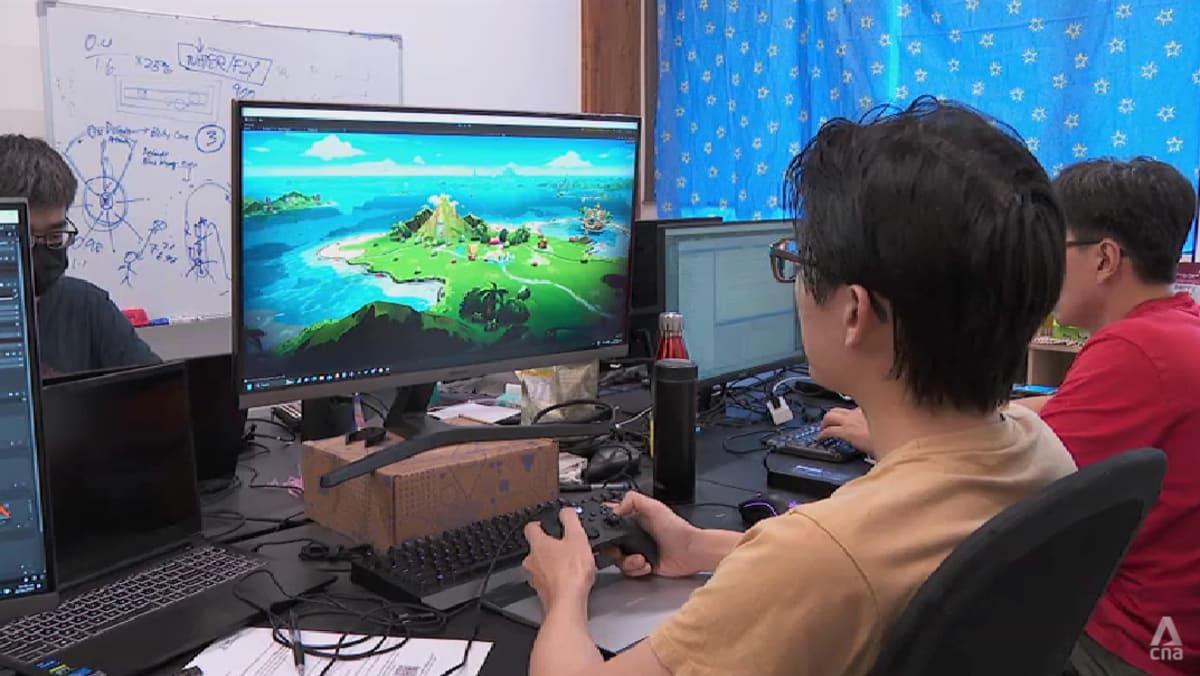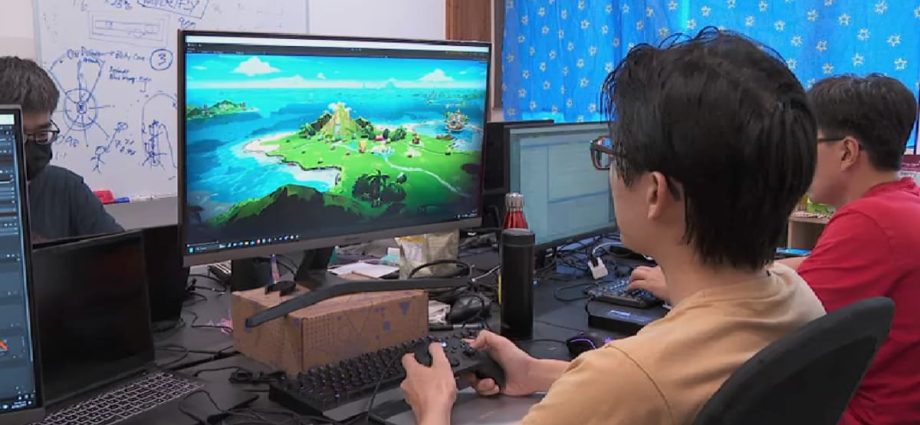
LABOUR WOES, FUNDING ISSUES
Local game developer The Gentlebros said making any new content or expanding to other markets will require more manpower, which it cannot afford.
The video game studio, which started in 2015, is behind Cat Quest, an award-winning role-playing game where a player assumes the role of a cat and goes on a quest to save the world.
Mr Desmond Wong, CEO of The Gentlebros, said “the video game industry as a whole is a pretty risky business”.
“Most developers are probably one or two video games away from closing if a game isn’t successful,” he added.
“So if you don’t have a hit, if you don’t have success, usually it’s pretty hard to continue running that business.”
In Singapore, it is also tough operating with the rising cost of living and the high cost of hiring staff,” said Mr Wong.
“We also have a lot of bigger companies… that also are able to pay really well for staff and employees, and that kind of jacks up the cost to hire in Singapore, which makes it doubly hard to grow and expand.”
Mr Wong said smaller studios like his try to offer workers a greater sense of involvement in their products and competitive salaries to make it “a more attractive place to work”.
Another game maker, Mighty Bear Games, is facing a similar problem.
Since January this year, the firm has been looking to fill positions for engineers, artists and project managers with more than three years of experience.
However, hiring talent is difficult, as those with the necessary skill sets would rather go to multinational companies (MNCs), said the game developer.
“The Singapore government has a good track record of attracting MNCs to Singapore and they provide them support as well. This makes it very difficult for local studios to compete, because they don’t get access to the same kind of support,” said Mr Fadzuli Said, co-founder and chief technology officer at Mighty Bear Games.
“On top of that, MNCs prefer to hire experienced talents and forgo training the junior talent pool. This extracts a lot of value from the ecosystem and puts a lot of pressure on smaller companies to do the training.”
There is a need for homegrown studios to be better supported for Singapore to have “a resilient and sustainable gaming economy”, he said.
“My main concern is the impact on the gaming ecosystem if major MNCs were to decide to withdraw from Singapore.”

